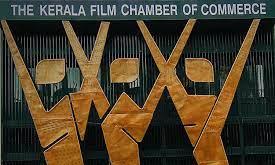
Kerala film industry voices opposition to government's film policy panel
text_fieldsKochi: The Kerala government's recent move to form a committee, led by veteran director Shaji N Karun, to draft a film policy in the state has sparked criticism from various individuals and organisations within the film industry.
The committee, headed by Shaji N Karun, also comprises Kollam MLA M Mukesh, actors Padmapriya, Manju Warrier, and Nikhila Vimal, directors Rajeev Ravi and B Unnikrishnan, producer Santosh Kuruvilla, and Kerala State Chalachitra Academy secretary C Ajoy. Rajeev Ravi expressed his surprise at being included in the committee without prior consultation.
Among those opposing the decision are the Women in Cinema Collective (WCC) and the Kerala Film Chamber of Commerce, who raised objections to the committee's constitution and its lack of consultation with relevant stakeholders.
The Kerala Film Chamber of Commerce voiced opposition to the committee, stating that they were not informed about its formation. They emphasised the importance of consulting all relevant trade bodies, such as the Producers Council, Film Distributors Association, and exhibitors, while drafting a film policy.
The Women in Cinema Collective, an organisation advocating for gender equality and safety in the film industry, expressed deep concern over the committee's inclusion of individuals lacking the necessary qualifications. They questioned the committee's role and status, particularly in light of the Hema Committee report on gender bias and sexual harassment in the Malayalam film industry. The WCC urged for meaningful implementation of the Hema Committee's recommendations and highlighted the urgency of addressing the concerns raised by the report.
The government's order for the committee requires them to submit recommendations for a film policy within two months, following consultations with various stakeholders and a study of the Hema Committee report. The Hema Committee had submitted its report to Chief Minister Pinarayi Vijayan in December 2019, but it remained unaddressed for two years until January 2022 when a new panel was instituted to study the report. However, no action has been taken on the Hema Committee's recommendations by this panel either.
The WCC, which has been advocating for the public release of the Hema Committee report, expressed concern over the government's establishment of yet another committee. They emphasised the need for enforcement of existing laws and regulations and the creation of a representative, qualified, and empowered committee to bring about genuine and lasting transformation in the film industry.
Amidst mounting criticism, the Kerala government's film policy initiative faces challenges as stakeholders demand transparency, meaningful action, and an equitable space for all participants in the film industry.























